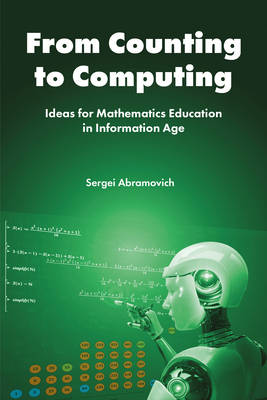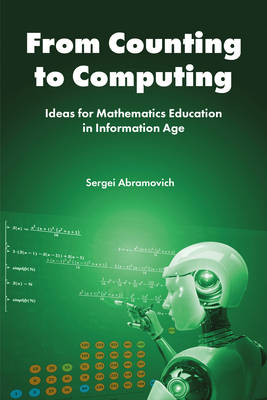
- Retrait gratuit dans votre magasin Club
- 7.000.000 titres dans notre catalogue
- Payer en toute sécurité
- Toujours un magasin près de chez vous
- Retrait gratuit dans votre magasin Club
- 7.000.0000 titres dans notre catalogue
- Payer en toute sécurité
- Toujours un magasin près de chez vous
From Counting to Computing
Ideas for Mathematics Education in Information Age
Sergei AbramovichDescription
From Counting to Computing demonstrates the powerful integration of formal mathematical reasoning, hands-on educational experiments, and digital computation to solve problems. It focuses on numeric tables shaped as squares, equilateral and isosceles triangles, offering ample opportunities for algebraic generalization in the digital age. Activities are grounded in addition and multiplication tables, polygonal numbers, and Pascal's triangle. Based on the idea that counting objects arranged in geometric shapes leads to the development of numeric patterns, this book extends this concept to digital computing. Using technology-immune/technology-enabled didactical framework, it blends formal reasoning with digital computation in problem solving and provides a conceptual shortcut to achieving mathematically significant computational outcomes.
From Counting to Computing covers classic topics from arithmetic, number theory, combinatorics, and probability theory. Many historical and cultural origins of mathematical concepts are highlighted, featuring figures like Pythagoras, Aristotle, Heron of Alexandria, Theon, Fibonacci, Gersonides, Pacioli, Cardano, Galilei, Kepler, Descartes, Fermat, Pascal, Spinoza, Leibniz, Jacob Bernoulli, Binet, de Moivre, Lamé, and Lucas.
The final chapter includes problems on the proof of divisibility of integer variable polynomials, motivated by digital computations. Ideal for mathematics teacher education programs and discrete mathematics courses, this book showcases the use of simple algorithms and tools like spreadsheets, Wolfram Alpha, Maple, and Graphing Calculator to achieve sophisticated computational results.
Spécifications
Parties prenantes
- Auteur(s) :
- Editeur:
Contenu
- Nombre de pages :
- 200
- Langue:
- Anglais
Caractéristiques
- EAN:
- 9781837088997
- Date de parution :
- 03-11-25
- Format:
- Livre relié
- Format numérique:
- Genaaid
- Dimensions :
- 156 mm x 234 mm

Les avis
Nous publions uniquement les avis qui respectent les conditions requises. Consultez nos conditions pour les avis.






